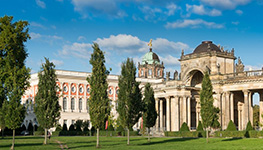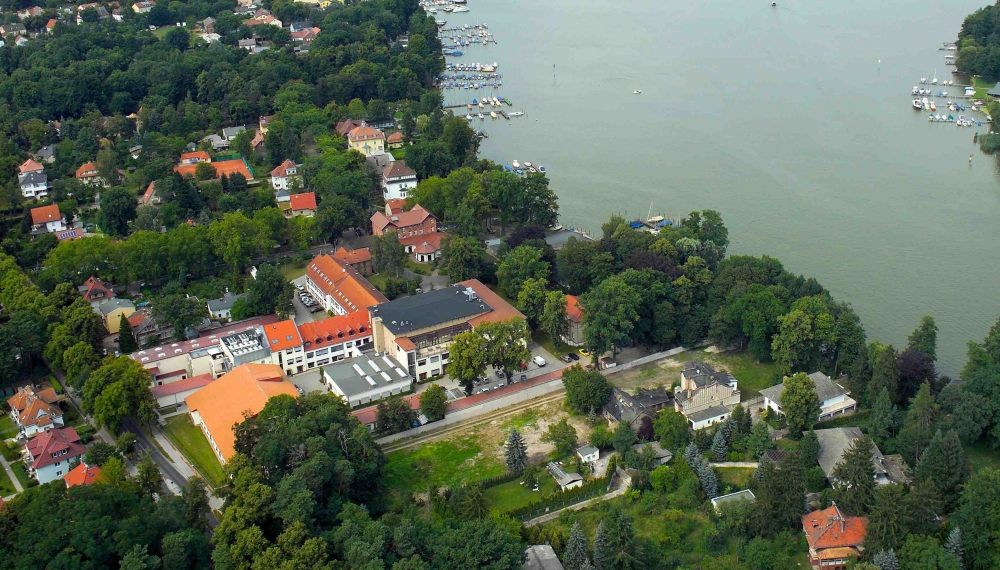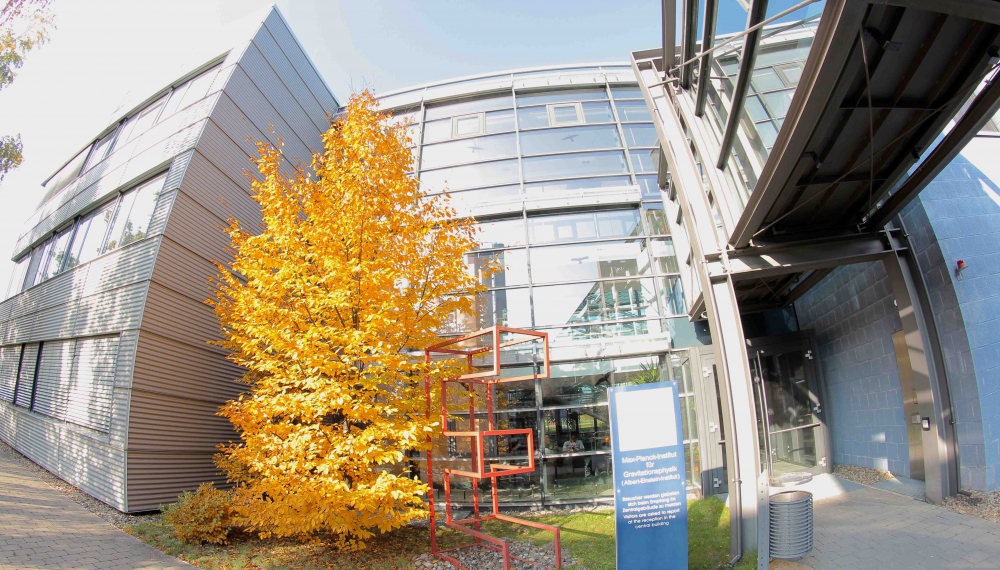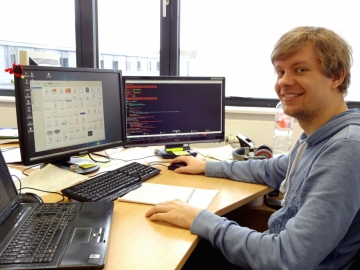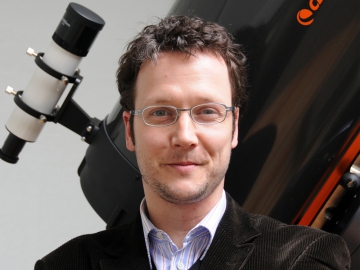Bachelor program in Physics
The Bachelor program in Physics, which will enable you to explore the most important thematic areas of physics, takes three years in all. The program is characterized by theoretical physics, experimental physics and a relatively high proportion of mathematics because mathematical methods and models are used to describe and calculate physical interrelationships. In addition to learning theory, you will also perform experimental work during a variety of laboratory classes.
From the fifth semester, you will choose a specialization in a branch of physics, such as astrophysics. You will be able to write your Bachelor thesis in this special field at the university or at one of the other three institutions of the Astrophysics Network. Once you have completed your Bachelor of Science degree, you can continue your studies in the research-oriented Master’s program in Astrophysics at the University of Potsdam.
Master’s program in Astrophysics
The two-year Master’s program in Astrophysics is ideal for physics graduates. The basic requirement is a Bachelor degree in a science subject, a sound knowledge of mathematics and physics, and a basic knowledge of astrophysics. A very good knowledge of English is also required because this international program is delivered completely in English.
In the course of the study program, you will explore the core areas of astrophysics in addition to a wide range of special astrophysical topics. Astronomical instrumentation, various methods of observation, and computer simulations also play an important role, equipping you with the methodological tools required to undertake your own research at a later stage.
For your Master’s thesis, you can choose from a large number of topics at the University of Potsdam or at one of the other research institutes of the Astrophysics Network.
Advisory services
Even if you may have already decided to study physics or astrophysics – it always helps to have a one-on-one discussion before embarking on your course to clarify any questions you may have, or to find out more about the schedule of studies and specific requirements. To this end, a number of advisory centers and services are available at the University of Potsdam. Your first contact point for all content-related and organizational questions is the specialist advisory service offered by the Institute of Physics and Astronomy. Here you will also be able to get to know your future lecturers and to talk to students about their experiences.
Any general questions you may have about studying, financing your studies, accommodation, etc. will be dealt with by staff from the Central Student Advisory Service, the Studentenwerk (Student Services Organization) or the International Office.
Applying and enrolling
There are no restrictions for admission to the Bachelor program in Physics at present. In other words, the grade you obtained in the Abitur examination is not a criterion for admission to the program. This is why you do not need to apply for a place on the Bachelor program in Physics – you simply enroll. Period for enrollment usually takes place in February/March.
In order to gain a place on the Master’s program in Astrophysics, you must apply to the University of Potsdam beforehand because certain technical requirements need to be met. There are two application phases per year for summer and winter semester.
Living in Potsdam
Potsdam is not only the largest city in Brandenburg, it is also a science location and lively university town. The University of Potsdam is omnipresent in the city – with a student population of over 20,000 and three campuses dispersed throughout the city: the faculties of human science and science in Golm Science Park; the Faculty of Arts at Sanssouci Park; and law, economics and social sciences, and computer science at Griebnitzsee. A shuttlebus and trains link the different sites.
However, Potsdam has a great deal more to offer than life on campus. The city has a lively art, theater and music scene, and offers countless leisure pursuits, not least owing to its prominent position in the midst of numerous lakes and waterways. The city – a UNESCO World Heritage Site – has a 1000-year-old history and is globally renowned for its Prussian palaces and gardens.
And if you wish to visit the nearby capital Berlin, or even live there: suburban and regional trains will take you to the heart of Berlin in less than 30 minutes. At no cost – thanks to the semester ticket.

